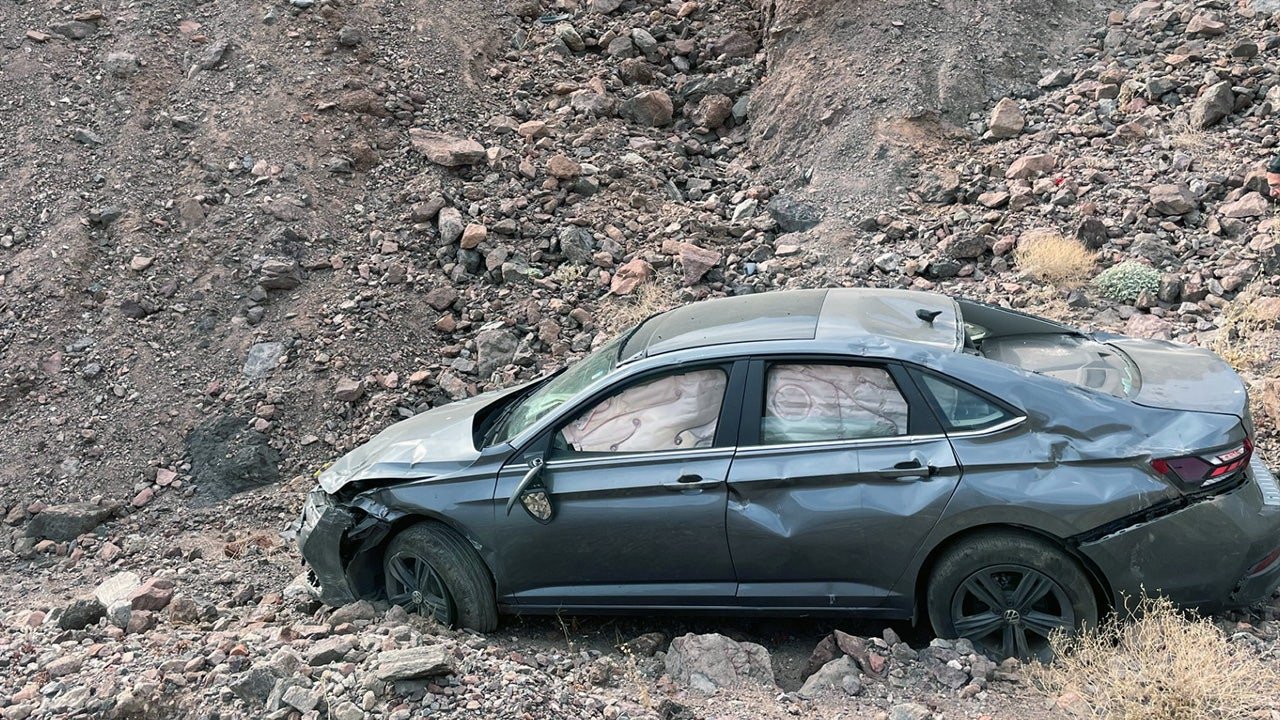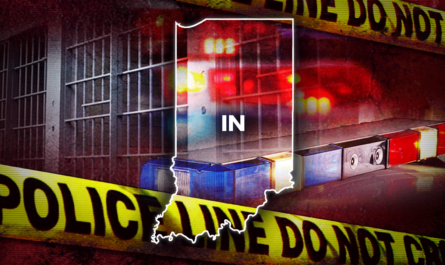A man died from heat exposure in triple-digit temperatures while at Death Valley National Park in California.
According to the National Park Service (NPS), 57-year-old Peter Hayes Robino, of Los Angeles, drove his car off a 20-foot embankment on Aug. 1.
Bystanders told local authorities that they spotted Robino stumbling towards his car prior to the incident. Park officials said that the witnesses offered to help him, but he declined. They said his responses did not make sense.
BLACK BEAR ATTACKS CHILD, 3, AT CAMPGROUND NEAR YELLOWSTONE NATIONAL PARK
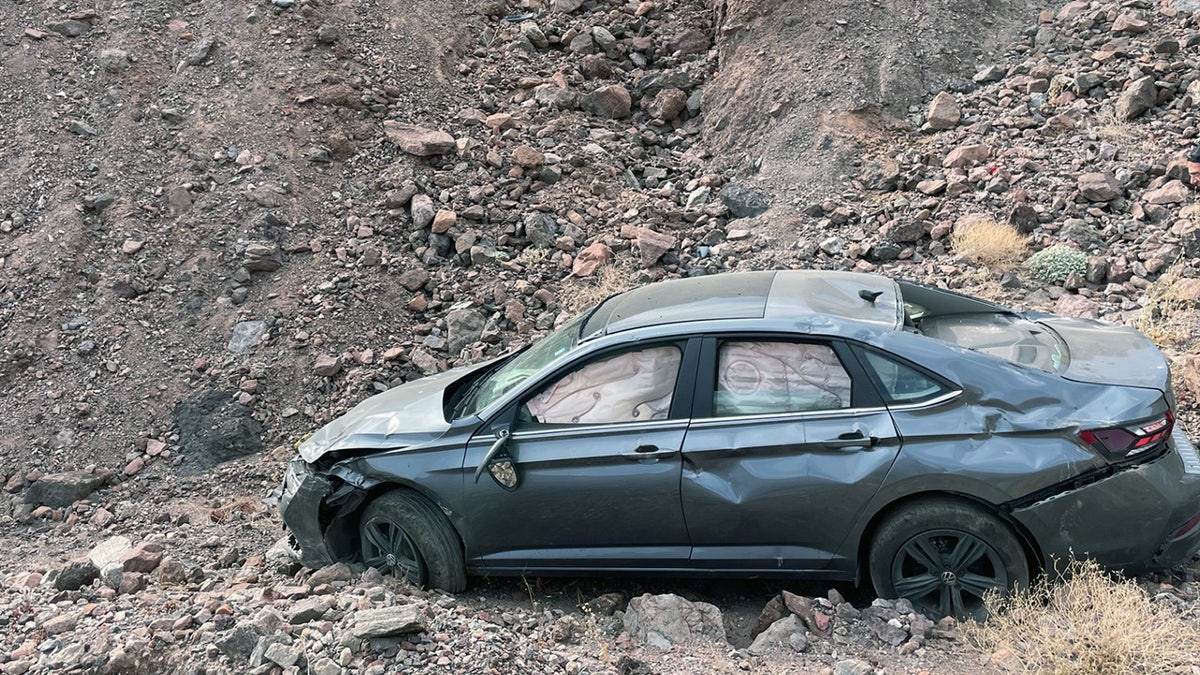
57-year-old Peter Hayes Robino died from heat exposure in triple-digit temperatures while at Death Valley National Park earlier this month. (National Park Services)
Robino then got into his car and drove off a steep 20-foot embankment at the edge of the parking lot.
The car rolled over and airbags deployed, the NPS said.
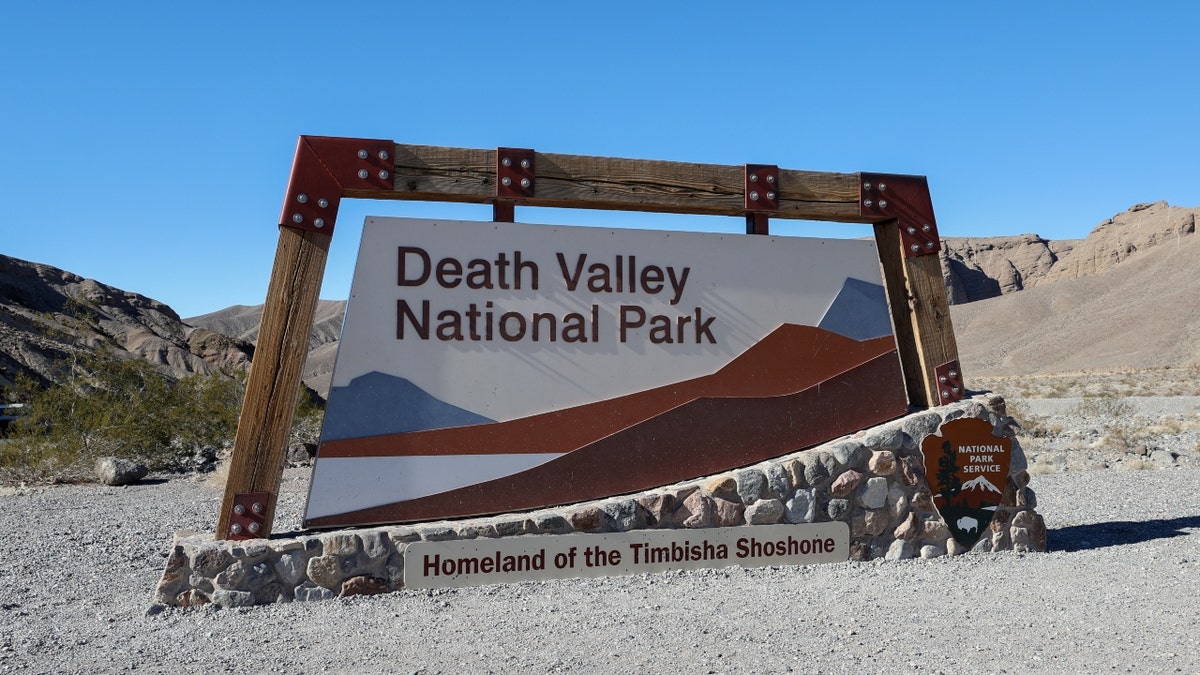
Death Valley National Park welcome sign is seen in Death Valley, California, United States on January 6, 2023. (Tayfun Coskun/Anadolu Agency via Getty Images)
A bystander promptly call 911 after witnessing the incident and another went down the embankment and helped Robino out of the crashed vehicle.
NPS emergency responders received the 911 call at 3:50 pm and arrived at 4:10.
GERMAN TOURISTS DEFACE JOSHUA TREE NATIONAL PARK IN PAINTBALL AND SLINGSHOT SHOOTING RAMPAGE
The bystanders said Robino was breathing until just before the park rangers arrived.
NPS EMTs started CPR and moved Robino into the air-conditioned ambulance. Robino was declared dead at 4:42.
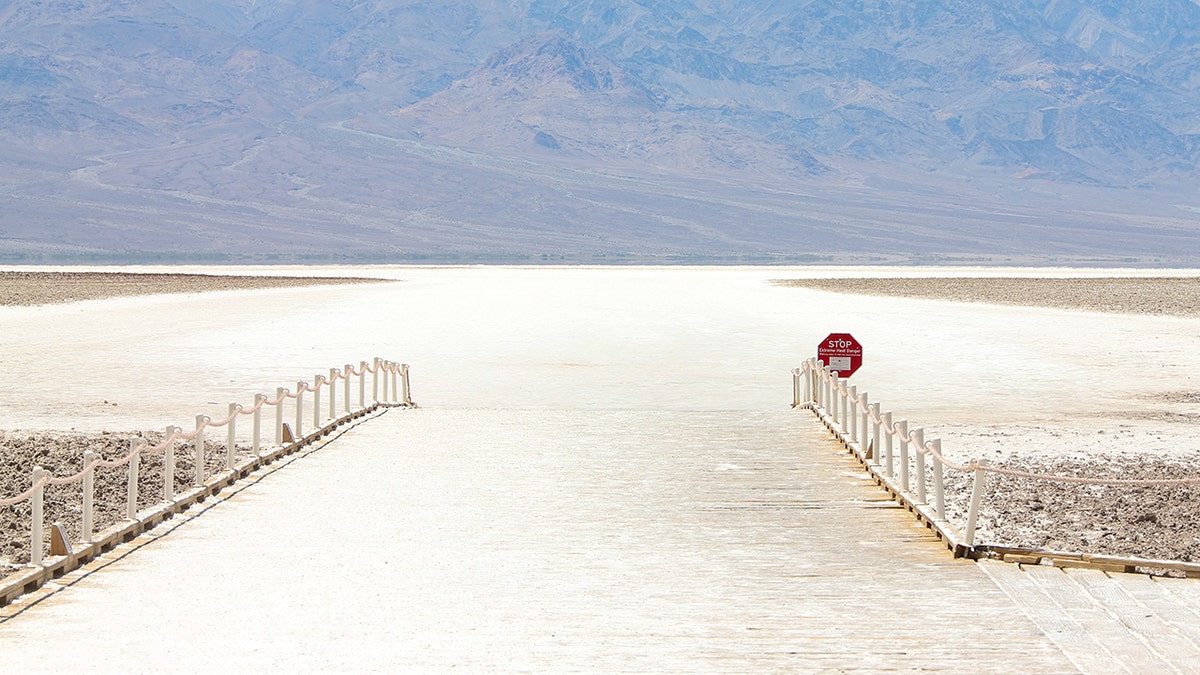
Salt flats at Badwater Basin are pictured in Death Valley National Park. Death Valley National Park, located in California and Nevada, is known for its extreme temperatures, vast deserts, and unique geological features. (Gabe Ginsberg/SOPA Images/LightRocket via Getty Images)
A subsequent autopsy conducted by the Inyo County Coroner revealed that Robino died of hyperthermia.
Symptoms of overheating can include confusion, irritability, and lack of coordination.
The NPS said that the national park was 119°F that afternoon.
“My condolences go out to Mr. Robino’s family and friends,” said Superintendent Mike Reynolds, who was one of the EMTs that responded to this incident. “His death serves as a reminder not to underestimate the dangers of extreme heat.”
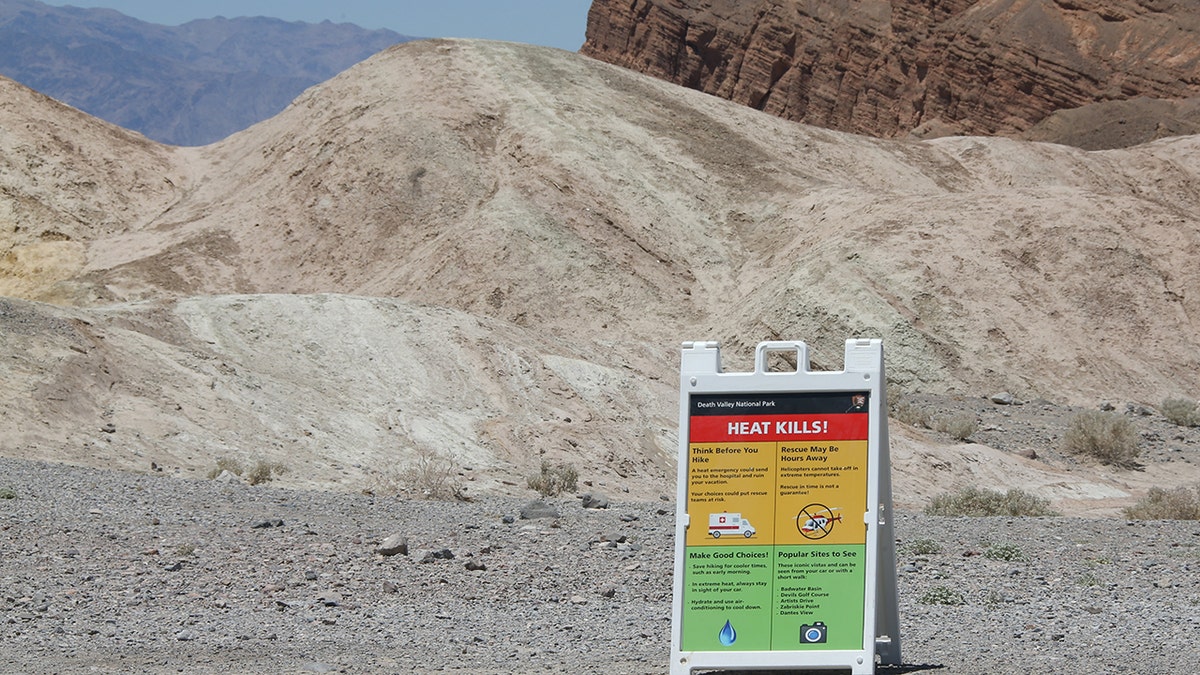
A heat warning sign is displayed at Zabriskie Point. Death Valley National Park, located in California and Nevada, is known for its extreme temperatures, vast deserts, and unique geological features. (Gabe Ginsberg/SOPA Images/LightRocket via Getty Images)
Park officials said this was the second heat related death this summer at Death Valley National Park.
Symptoms of overheating include confusion, irritability, and lack of coordination.
Park rangers in Death Valley National Park advise that summer visitors:
- Avoid the heat by staying in or near air-conditioning,
- Not hike after 10 am at low elevations,
- Drink plenty of water, and
- Eat salty snacks.

